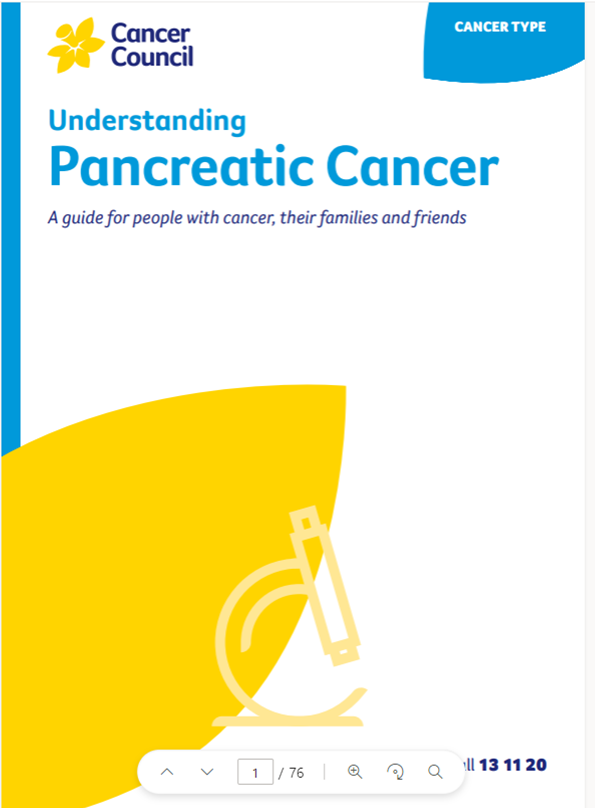Pancreatic cancer
If you’re affected by pancreatic cancer, you may have many questions about how it is diagnosed, treatment options, side effects and how to stay well. You can find trustworthy information about all aspects of your experience below.

Download PDF
Symptoms
Learn about the common symptoms of pancreatic cancer and when to see your doctor.
Read more
For your community
Print these questions
Diagnosis
- What type of pancreatic cancer do I have?
- Has the cancer spread? If so, where has it spread? How fast is it growing?
- Are the latest tests and treatments for this cancer available in this hospital?
- Will a multidisciplinary team be involved in my care?
- Are there clinical guidelines for this type of cancer?
Treatment
- What treatment do you recommend? What is the aim of the treatment?
- Are there other treatment choices for me? If not, why not?
- If I don’t have the treatment, what should I expect?
- How long do I have to make a decision?
- I’m thinking of getting a second opinion. Can you recommend anyone?
- How long will treatment take? Will I have to stay in hospital?
- Are there any out-of-pocket expenses not covered by Medicare or my private health cover? Can the cost be reduced if I can’t afford it?
- How will we know if the treatment is working?
- Are there any clinical trials or research studies I could join?
- Do I need the support of a specialist palliative care service?
Side effects
- What are the risks and possible side effects of each treatment?
- Will I have a lot of pain? What will be done about this?
- Can I work, drive and do my normal activities while having treatment?
- Will the treatment affect my sex life and fertility?
- Should I change my diet or physical activity during or after treatment?
- Are there any complementary therapies that might help me?
After treatment for early pancreatic cancer
- How often will I need check-ups after treatment?
- If the cancer returns, how will I know? What treatments could I have?
This information is about pancreatic adenocarcinomas, the most common type of cancer in the pancreas. For information about how pancreatic neuroendocrine tumours (NETs) are diagnosed and treated, see our separate information on neuroendocrine tumours.
Need to talk?
Call 13 11 20 to talk to a health professional Or email us your questions.